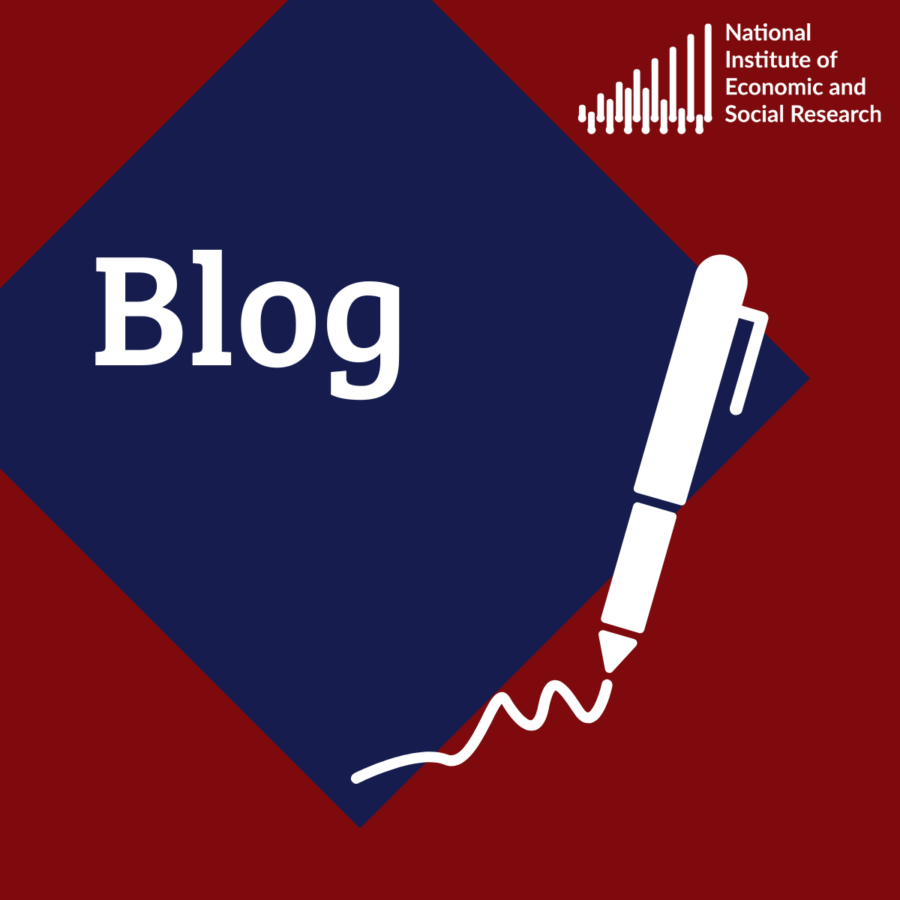Migration and trade
“I think politicians do have to say to individuals who are negatively affected, and let’s face it there will be some: ‘Yes, we’re doing this for the good of our country, and yes you may lose out, but ultimately we still have to do this.’ “Just as we said to the coal miners 30 years ago: ‘Sorry we can get our coal a lot cheaper abroad. We can’t afford to keep on propping you up.'”

“I think politicians do have to say to individuals who are negatively affected, and let’s face it there will be some: ‘Yes, we’re doing this for the good of our country, and yes you may lose out, but ultimately we still have to do this.’ “Just as we said to the coal miners 30 years ago: ‘Sorry we can get our coal a lot cheaper abroad. We can’t afford to keep on propping you up.'”
I said this to Nick Robinson when he interviewed for his documentary, “The Truth About Immigration”. Since this was the quote the BBC chose to focus on, I thought I’d try to explain in a bit more detail what I meant.
The basic point is the standard economic one that trade and migration are likely, in theory, to have similar impacts. In both cases, the overall impact will be positive, but there will be distributional consequences. That is, national income (GDP) and average incomes (GDP per capita) will increase, but some individuals and households will lose out, at least in the short run. In particular, trade will hurt those working in sectors where the UK does not have a comparative advantage, while immigration will hurt those who are in direct competition with immigrant workers.
Hence the analogy with coal. From at least the 1970s, the UK did not have a comparative advantage in coal mining: it could be produced cheaper abroad. Allowing coal imports ensured that, over time, UK coal production fell steadily, eventually disappearing almost entirely. This process was accelerated by the 1984-85 miners’ strike, but the strike did not change the underlying dynamics.
The UK has gained economically from trade in coal; we are richer on average as a result. But equally there is no doubt that those working in the coal industry, and areas that were heavily dependent on coal mining, have suffered as a result. The same seems likely to be true of immigration. The UK – by which I mean average British households, as workers, taxpayers, and consumers has gained economically – but those who are in direct competition with immigrant workers are likely to have lost.
This is what I was trying to get across: the standard utilitarian Adam Smith case for a liberal, market-oriented approach: that (accompanied by appropriate redistribution) it will maximise welfare. It does not imply, as one or two people suggested, that I don’t care about the human consequences of economic decisions, nor that I think people are a commodity like coal. On the contrary, I was saying that both in the case of coal mining and immigration relatively liberal policies had benefited people, on average, even if some individuals had lost out, and that these policies had therefore been broadly sensible: the human consequences, overall, were positive. Of course, all this is true at a very high level of generality – it doesn’t mean that I think every detail of policy has been correct. It certainly doesn’t meant that government (via redistribution or other policies) could not have done better in addressing the consequences, economic and social, for those who lost out.
However, I also made a further point, which doesn’t come out in the quote above. There are also differences between the case of coal mining and that of immigration. The most obvious is that the negative consequences for individuals and communities are far clearer and far more serious in the former case. Miners lost their jobs; in many cases, the direct result was long-term unemployment and poverty. Adjustment has been very slow and painful: some communities have still not really recovered. Regardless of what you think about the policy, there is no doubt about the very real damage it did.
By contrast, for immigration, the evidence of direct harm is much less clear. Numerous studies have failed to find links between immigration and unemployment in the UK; nor have wages overall been depressed. The overall pace of labour market adjustment to migration appears to have been remarkably fast, and surprisingly painless. While there is some evidence of negative wage impacts for lower-paid workers, the numbers are small compared to the impact of other factors, such as technological change. It seems likely that workers in sectors that face particularly intense competition from immigrants will have lost out, but even that is unclear – few “sectors” are as immigrant-intensive as economic research (especially in London), but most of us who work in that sector think we gain more than we lose, for the reasons set out here. And while the social costs and benefits of immigration are controversial (and to some extent subjective), the biggest impacts have been in London, which has generally done pretty well. Even what seem like obvious downsides for existing residents- the increase in the number of children for whom English is not the first language – turn out not to have the expected negative impacts after all.
What do I conclude from this? It is that if we want to “buck the market” – that is, to avoid economically liberal policies that hurt identifiable individuals and communities, even if they benefit the country overall and on average – then immigration is not the place to start. Instead, we could reimpose prohibitive tariffs on imported coal and return to mining our own coal. And why stop there? There are plenty of other industries where free trade hurts British workers in specific sectors, while making us richer overall. Yet – rightly in my view – none of this is remotely on the agenda. No mainstream UK political party advocates protectionism, whether for coal or more broadly. No-one with any influence on economic policy, whatever their position on the miners’ strike and its aftermath, argues that we’d be better off with a thriving (but highly subsidised) coal industry. But at the same time, there is now a bizarre, misguided consensus, among politicians if not economists, that opening the UK labour market to citizens of the new EU member states in 2004 – despite the evidence that the impacts were broadly positive, and the downsides small – was somehow a policy error.
In response to one of my critics, I said that don’t think politicians should make decisions purely on the basis of economic arguments or the arguments of economists. But, when politicians do use economic arguments, it is not unreasonable to ask for a little consistency. When it comes to trade, they accept the economic arguments, and are prepared to say to the public that the (general) benefits outweigh the (specific) costs. It’s about time they did the same for immigration.















